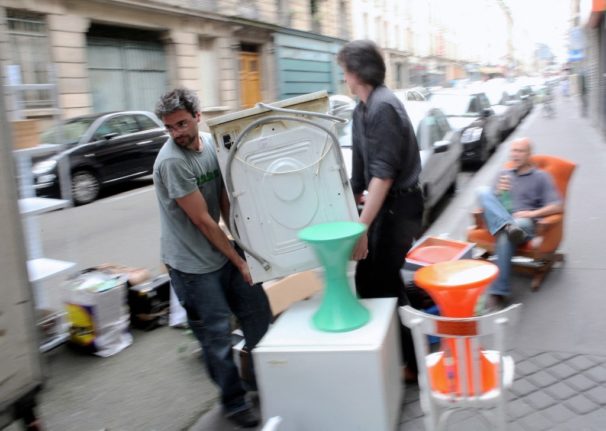There are good and bad landlords in Spain, and there also are good and bad tenants. Sometimes, the decision to end a rental agreement comes as a result of other reasons.
Either way, tenants and landlords alike may at some point need to consider the conditions under which a landlord can break the rental contract and require their tenants to leave.
Here are the reasons which according to Spanish law can be given to end a rental agreement:
Not paying rent
An obvious one, as this is the tenant’s main contractual responsibility. If you don’t pay the rent, the landlord is within their rights to evict you if the payments break any late-payment agreements you might have. Be sure to check the contract, and as a landlord it may be worth getting rental default insurance if this happens.
READ ALSO: Is getting rental default insurance worth it for landlords in Spain?
Animals at home
Many rental contracts include clauses specifying whether the tenant can have pets in the house. Some landlords are happy to have pets, but if they specify that he or she doesn’t want animals in their property and the tenant breaks the terms of the contract, the landlord is within their rights to evict them.
Termination of the contract
When the rental contract actually ends, the tenant is obliged to leave the property. In this sense, the owner must communicate, at least 30 days in advance, his willingness not to renew the rental agreement. Otherwise, the lease will be extended.
READ ALSO: What’s the law on squatting in Spain?
Subletting
Most rental contacts in Spain expressly forbid the subletting of properties or rooms in the contract. If the tenant isn’t contractually allowed but sublets the property anyway, they can be kicked out.
READ ALSO: Is subletting ever legal in Spain?
Not keeping to comunidad rules
If a tenant doesn’t respect the rules of ‘la comunidad‘ (like a homeowner’s association) in the building where the rented property is located, the landlord could be within their rights to evict them. Often the landlord may be friendly with el presidente of the homeowner’s association, and violations could include any number of things, but generally relates to behaviour that is annoying, unhealthy, harmful, or dangerous to other residents.
In those cases, la comunidad itself could initiate legal action against the tenant with the aim of immediately evicting the tenant.
READ ALSO: ‘La comunidad’: What property owners in Spain need to know about homeowners’ associations
Illegal activities
It almost goes without saying, but if a tenant is undertaking illegal or illicit activities in the property the landlord is well within their rights to terminate the contract and kick the tenant out.
Doing work on the house
Tenants cannot carry out major works on the property without the express written consent of the owner. Any refurbishments that alter the configuration of the house (including storage rooms and parking spaces) must be agreed to in advance by the landlord. Otherwise, the tenant could be forced to repair the damage, and will likely have their rental contract terminated.
Purchase/sale of the property
If a landlord sells the property, the new owner can evict the tenant if they wish. If that does happen, tenants do have some legal rights and can’t be turfed out onto the street immediately – they can usually stay for a maximum of three months from when the property is sold.
The landlord needs the property
If the landlord or any of his or her family members (by blood, adoption or ex-husbands and wives) need the property for themselves, they must inform the tenant and grant them a two-month period to vacate the property. For this to be possible, the Urban Leases Law requires that at least one year of validity of contract has elapsed, and the landlord or family member must occupy the house within a maximum period of three months after the tenant is evicted.
Breach of contract
Generally speaking, the breaching of any clause of the rental contract is justifiable grounds for evicting a tenant. We have outlined several potential contract breaches above, but it is worth remembering that, technically, a landlord is within their rights to kick out a tenant for any breach of any clause in the contract – so be sure to read the small print.
READ ALSO: Tenant or landlord – Who pays which costs in Spain?



 Please whitelist us to continue reading.
Please whitelist us to continue reading.
Member comments